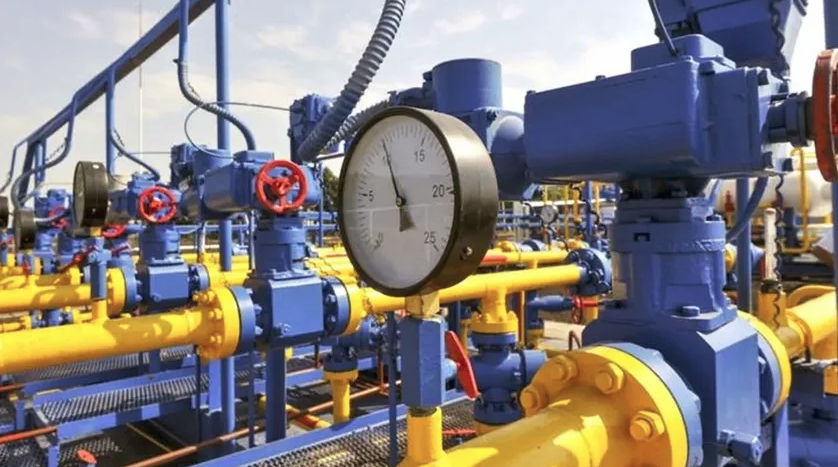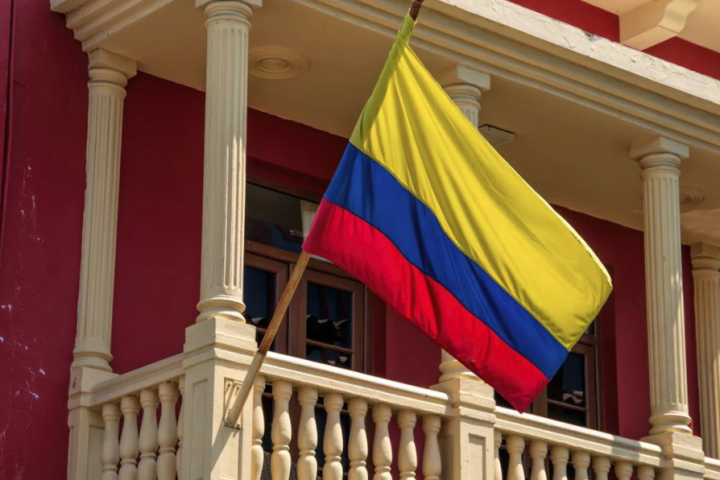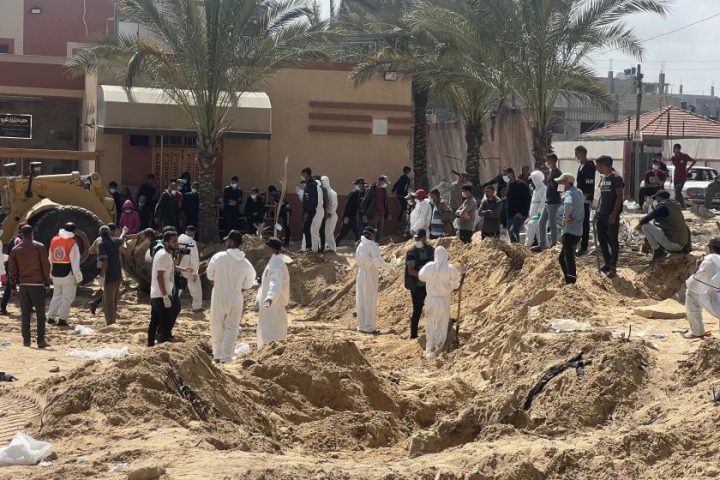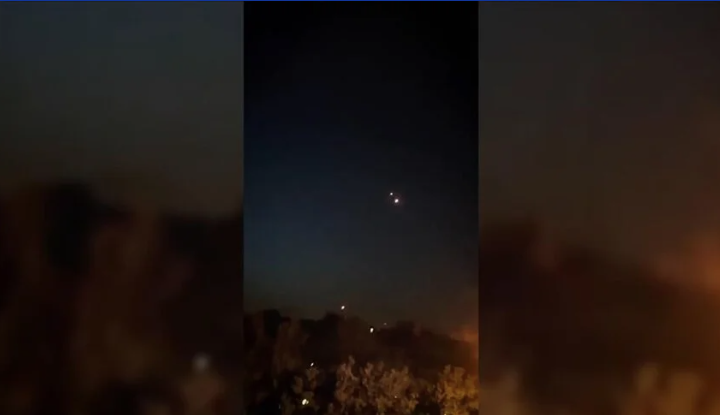The ‘tripartite agreement’ between Egypt, Israel and the European Union on gas exports has raised some questions

The ‘tripartite agreement’ between Egypt, Israel and the European Union on gas exports raises questions.
The agreement between Egypt, Israel and the European Union (EU) on the supply of natural gas to Europe can be seen as an attempt by Europe to overcome the ‘turmoil in the oil market’. The main message of the focus on the Middle East for oil and gas is directed at Russia.
- G7 leaders vow to stand with Ukraine ‘for as long as it takes’
- Cavusoglu met with his Iranian counterpart: Terrorism is the common enemy of us all
The trilateral agreement was realized within the framework of the European Union’s search for ‘alternative energy sources’. As the war in Ukraine is expected to continue in the winter months, one wonders whether this agreement was realized within the framework of policies to contain Russia economically and politically. It is clear that the steps taken cannot be evaluated independently of the conflict between Russia and the West.
Important antecedents
The gas trade agreement between Egypt, Israel and the European Union was concluded under the umbrella of the Eastern Mediterranean Gas Forum (later transformed into a regional organization). This agreement was signed after Russia launched the so-called ‘gas war’ against Europe. Gazprom announced on June 14 that gas deliveries to Germany via the Nord Stream pipeline had been reduced from 167 million cubic meters to 100 million cubic meters. EU Commission President Von der Leyen announced that the EU had decided to reduce its fossil energy purchases from Russia and diversify its energy sources following Russia’s attack on Ukraine. In the Egyptian capital Cairo, the European Union (EU), Israel and Egypt signed a trilateral natural gas agreement to reduce energy dependence on Russia. The trilateral energy memorandum of understanding is a framework agreement and envisages working on ways and means to transfer gas from Middle Eastern countries to European Union member states. In the first phase, a natural gas pipeline will be built from Israel to Egypt and the natural gas liquefied in Egypt will be transported to Europe.
The trilateral agreement is foreseen for three years, after which it will be automatically renewed for two years. The base period of the agreement is set at less than nine years because the European Union does not want to sign a long-term deal as part of reducing its dependence on fossil fuels. Nor does the EU want to buy energy for a long time at fixed prices in the hope that prices will fall.
Under the agreement, the EU will encourage European companies to participate in gas exploration and extraction tenders in Israel and Egypt. According to the agreement, the volume of liquefied gas exported from Egypt to Europe will increase. A significant increase is expected to take up to two years. Egypt is already a natural gas producer, but high domestic demand has reduced export volumes. Egypt already exports natural gas to many European countries. Egypt has a 23.28 percent share of the Turkish liquefied natural gas market worth $906 million. It exports natural gas worth $408 million to Italy and $349 million to Spain every year.
Within the framework of the tripartite agreement, Egypt’s liquefied natural gas exports are expected to range between 2.5 and 3 billion cubic meters in 2022, and then increase to 4 billion cubic meters. Egypt’s exports cannot be compared with the amount of natural gas that Europe imports from Russia. Europe’s imports from Russia are estimated at 155 billion cubic meters per year. However, apart from Egypt and Israel, it is known that Europe will also turn to Azerbaijan and some African countries, especially Nigeria, as alternative energy sources. Italy is seeking to increase its gas imports from Algeria, while Germany is in talks with Qatar about liquefied gas imports.
Europe is expected to import a total of 7 billion cubic meters of liquefied natural gas from Egypt in 2022. The previously agreed amount was around 5 billion cubic meters. It was agreed to work on doubling this amount next year. In recent months, Egypt’s gas exports to Turkey and Europe have increased significantly.
Serious problems
1-The supply volumes agreed upon in the tripartite agreement will not be enough to solve the problems arising from the dispute between Russia and Western countries from a Western perspective. The latest agreement does not clarify a timetable for increasing the supply of liquefied natural gas from Egypt to Europe. It is also unclear when the construction of the gas pipeline from Israel to Egypt will start. This suggests that Russia will dominate the energy markets in Europe for a long time to come. Russia will continue with its plans regarding Ukraine and will continue to pressure Europe with the ‘energy card’.
It is a matter of curiosity whether the trilateral gas deal is an alternative to the so-called EastMed (Eastern Mediterranean natural gas pipeline) agreed between Israel, Greece and Cyprus in 2020. The estimated cost of the pipeline to be built in the Mediterranean was shown as 6 billion dollars. There were many obstacles in front of this project, which could meet 10 percent of Europe’s gas needs.
3- Gas transportation projects in the Middle East are quite complex. Qatar has about 14 percent of the world’s natural gas reserves. Qatar was planning to build a gas pipeline through Saudi Arabia, Syria and Turkey to transport its natural gas to Europe. A new gas pipeline was also planned between Egypt and Israel. The gas pipeline between Arish in Egypt and Ashkelon in Israel is also planned to be upgraded. Israel, Greece and Cyprus have agreed to build a massive pipeline across the Mediterranean. The European Union has announced its support for the project, which is scheduled to be completed in 2025, but no concrete progress has yet been made. There is also a natural gas transportation line project, initially 200 kilometers from Israel to Southern Cyprus and then to Italy, the cost of which is estimated at $6 billion.
4-The Greek Cypriot Administration of Southern Cyprus (GASC) and Egypt signed an agreement in 2018 for the construction of a natural gas pipeline. According to the agreement, which envisages the construction of the first long pipeline underwater in the Mediterranean, Cyprus’ natural gas would be liquefied in Egypt and exported. Under the agreement, gas from the Aphrodite field in Cyprus would be transferred to Egypt. The Jordanian Ministry of Energy also signed an agreement to import Israeli gas. According to this agreement, a 64-kilometer pipeline between Israel and Jordan should be built.
5 – The European Union is hesitant to support EastMed and other pipelines. This is because offshore pipelines are costly and would keep the European Union dependent on fossil fuels for a long time. Europe plans to develop renewable energy, and Turkey, on its own behalf and on behalf of the Turkish Republic of Northern Cyprus, objects to the pipeline and claims certain fields in the Mediterranean.
In conclusion, the tripartite agreement between the European Union, Israel and Egypt is within the scope of Europe’s search for energy alternatives to Russian gas. However, this agreement is far from being the basis for meeting Europe’s needs. Russia knows this very well and acts accordingly. As a matter of fact, Russia has not voiced any objection to this agreement and hopes that the crisis with Europe will be overcome through diplomatic solutions in the long run with the end of the Ukrainian war. With all the gas projects in the Middle East (Israel, Egypt, Cyprus, Turkey and others), it is not possible to meet Europe’s gas needs of more than 3 billion cubic meters per day. All these projects can only meet 10 percent of Europe’s gas needs. Although it cannot meet a significant share of Europe’s gas needs, Egypt’s natural gas in particular stands out as an important alternative source. In addition to Egypt’s current gas production, its gas reserves are expected to increase significantly with new discoveries. However, it is clear that Europe cannot completely abandon Russian gas.
Ultimately, this deal will be a prelude to Egypt achieving the status of a regional gas exporter. Egypt’s gas exports will take at least two years to increase, according to an analysis by Sharq al-Awsat quoted by Independent Arabia. It should not be overlooked that the trilateral parties to the deal and the United States have strong political and strategic ties that will be maintained in the medium and long term.




